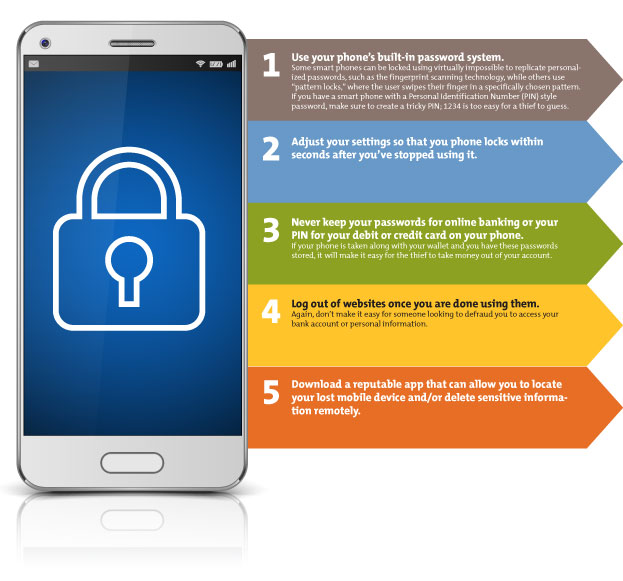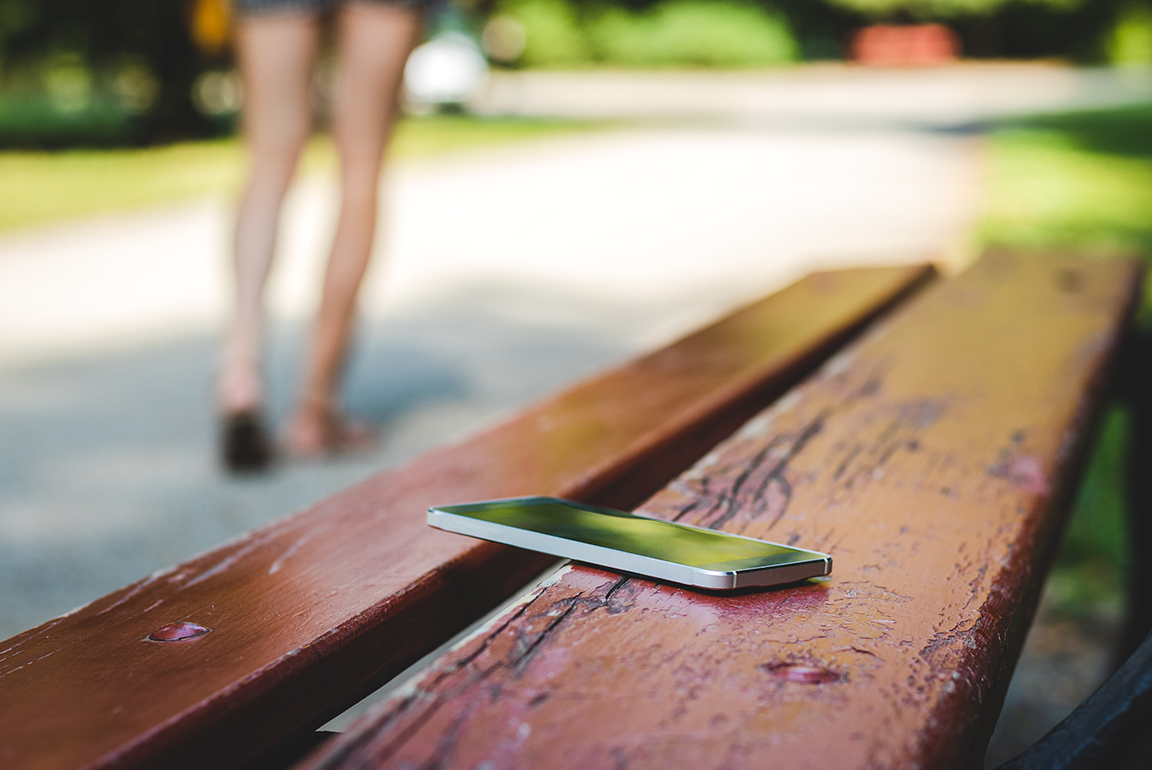What should I do if I lost my smartphone?
“Oh no, I lost my smartphone!” It’s a horrible feeling to lose a valuable piece of equipment, whether it was misplaced or swiped up by the wrong hands. Smartphones aren’t just expensive, but they are our connection to family, friends and work — filled with personal information and sensitive data including credit card details, contact lists, account information and even your photo library. So what should you do when a phone is lost or stolen?
Nowadays, we can use our smartphones for almost any day-to-day transaction such as buying movie tickets and ordering food delivery, plus more data-rich tasks like paying our bills and doing online banking. In fact, according to the Canadian Bankers Association (CBA), nearly three quarters of Canadians (72 per cent) now use online and mobile banking as their primary means of banking.
Your personal data could be at risk when that device goes missing.

If your smartphone is stolen, do this.
Hopefully, your smartphone never gets lost or stolen, but in the event that does happen, the CBA recommends taking immediate action to protect your data and accounts.
Immediately contact your smartphone service provider to disable your account. Your phone’s unique identifier (known as the IMEI or International Mobile Equipment Identity number) will be added to a “blacklist” and participating Canadian wireless service providers will not allow it to be used on their respective wireless networks.
It’s also critical that you change your online banking passwords and any other sensitive app or website passwords to keep your accounts safe. You can also try to locate your device using a location app if it has been previously installed. (See more on that in the next section.)
Related: Don’t fall victim to these 5 types of fraud.
5 steps to take BEFORE your smartphone goes missing
You can help safeguard your information further with some proactive strategies. Before your device falls into the wrong hands, the CBA recommends following five steps for greater protection.

Use your smartphone’s built-in password system. Some smartphones can be locked using virtually impossible to replicate personalized passwords, such as the fingerprint scanning technology, while others use “pattern locks,” where the user swipes their finger in a specifically chosen pattern. If you have a smartphone with a Personal Identification Number (PIN) style password, make sure to create a tricky PIN. A password such as 1234 is too easy for a thief to guess.

Adjust your settings so that your phone locks within seconds after you’ve stopped using it. If you’ve lost your smartphone, then at least it will be locked.

Never keep your passwords for online banking or your PIN for your debit or credit card on your smartphone. If your phone is taken along with your wallet and you have these passwords stored, it will make it easy for the thief to take money out of your account.

Log out of websites once you are done using them. Again, don’t make it easy for someone looking to defraud you to access your bank account or personal information.

Download a reputable app that can allow you to locate your lost mobile device and/or delete sensitive information remotely. This industry association has a good list of apps for different operating systems.
Preparing for the possibility of losing your smartphone is a smart strategy that everyone should consider. It shouldn’t take a lot of time to safeguard your device, but it should take some of the worries and struggles out of an unfortunate event, which hopefully never happens.
Information and tips via the Canadian Bankers Association website, posted on March 1, 2018.

Learn the 17 steps to protect your online accounts from fraud.
Up Next
Manitoba mortgage FAQs answered
Manitoba’s hot housing market continues its upward trajectory, with sales increasing 10.9% in the first 11 months of 2024. In November alone, home sales jumped 20.3% over the same period…
How to finance your commercial renovation
Business renovations can come with cash flow challenges. A large renovation may require a significant upfront investment, which could pinch your cash flow. You may have to deal with payment…
Walk This Way: How United Way Winnipeg is making a difference
The annual event raises funds for Manitobans in need. “Walk This Way is a fun, inclusive and meaningful way to show our community how far we can go when we…




